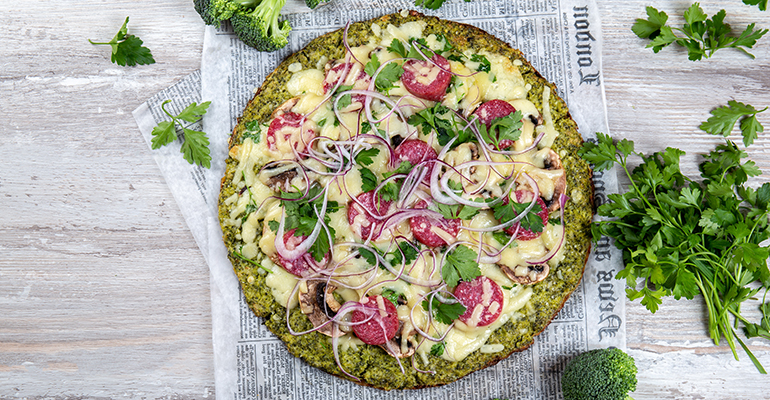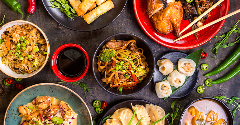Veggie-packed food brands fill the gap between ‘plant-based’ and ‘vegetable-rich’
11 Jan 2021Generation Z – the generation of people born between 1997 and 2012 – may be fuelling the plant-based food trend but, paradoxically, they are not eating enough plants, creating a white space for products and ready meals that put vegetables centre-stage.
A national survey found that young people in England aged between 16 and 24 eat less fruit and vegetables than older adults while in the US, vegetable consumption relative to recommendations is lowest among boys aged nine to 13 years and girls ages 14 to 18 years, according to a government report.

Although plant-based products are generally seen as being healthy, food manufacturers’ focus on imitating the taste, texture and appearance of meat and dairy means they could be missing an opportunity to combine successful NPD with public health goals: encouraging people to eat more whole vegetables, fruit, pulses, and other unprocessed plants.
“Brands may take for granted that Gen Zs even know what role vegetables play in a balanced diet,” writes global food analyst at Mintel, Melanie Zanoza Bartelme. “There seems to be a disconnect between ‘plant-based’ and ‘vegetable-rich,’ and vegetable brands should do more to help Gen Zs see the need for vegetables in a way that will resonate with them.”
“Vegetable brands are missing an opportunity to help this generation understand the importance of ‘actual’ vegetables in their diets,” she adds. “Brands can look to new kinds of messaging and product innovation to help Gen Zs see vegetables as a tasty, exciting and convenient source of plant-based goodness.”
Exotic flavours, exciting formats, and comfort food favourites
Some brands are already targeting this consumer segment with appealing flavours and formats.
US brand Tattooed Chef’s Greens 5 offers consumers bags of mixed frozen vegetables that are pre-cut and pre-seasoned, meaning there is no need to wash, peel and chop. It also has a range of ready meals, such as Mexican street food, and healthy versions of popular comfort foods, such as cauliflower mac & cheese.
Irish frozen food company Strong Roots recently expanded its range of seasonal and sustainably grown vegetable-based products to the US with listings in over 2,000 Walmart stores. Its products include broccoli & purple carrot bites, cauliflower hash browns, and pumpkin & spinach burger patties.
Other North American brands are using whole vegetable pieces to create healthier versions of popular snacks that tend to be high in salt and fat, such as fried chicken wings. Canadian brand Wholly Veggie makes cauliflower Buffalo wings using whole florets, which it says retains the vitamins and fibre, while US company Rollin Greens serves its crispy cauliflower wings with a green Buffalo sauce made with spinach and jalapeño.
Why so veg-shy?
There are a number of reasons why Generation Zs have been spurning vegetables, according to recent Mintel research.
Firstly, preparing vegetables is seen as hard work with almost double the number of Gen Z consumers in the US saying they avoid preparing vegetables because of the “hassle” involved while three in 10 say it is hard to make vegetables taste good.
This could well be because many of today’s young people lack a repertoire of recipes to actually turn raw vegetables into tasty meals, according to Zanoza Bartelme. The fact that many schools have cut spending on subjects such as home economics, where high schoolers learn the importance of nutrition and how to follow a healthy, balanced diet, could well be to blame.
In order to reach this generation, Mintel suggests food brands work with influencers who feel passionate about healthy eating, nutrition and vegetables, and task them with helping Gen Z consumers see that vegetables are a necessary part of their diet, using social media platforms such as TikTok.
Related news

Chinese food brand wants to give customers ‘the full experience’
16 Dec 2022
Food brand Xiao Chi Jie is revamping Chinese cuisine for the modern American consumer. The Washington-based company sells regional Chinese specialties like soup dumplings, noodle kits, and barbeque skewers direct-to-consumer in the US.
Read more
Regulations spur healthy snacking in Europe
15 Dec 2022
Healthy snack demand is on an upward trajectory in Europe, fuelled by products attaching health halos to their products, according to latest figures by Euromonitor – but regulations may be the real driver.
Read more
Could the EU-Mercosur trade deal be revived?
14 Dec 2022
The re-election of Luiz Inácio da Silva, or Lula, as president of Brazil has prompted speculation that the free-trade agreement between the EU and South American Mercosur bloc could be revived – but the European farming sector has concerns.
Read more
Could menopause-supporting products be the next big opportunity?
13 Dec 2022
As supplement brands launch products to relieve the symptoms of menopausal women such as nutraceutical gummies, the unmet needs of this group is attracting government attention in the UK.
Read more
Plant-based fish and seafood launches around the world
12 Dec 2022
From pea protein-based prawns to microalgae-based tuna alternatives, plant-based alternatives to fish and seafood are on the rise around the world.
Read more
Editors’ choice: Our roundup of the most innovative sweets, snacks and bakery products
9 Dec 2022
The sweets, snacks, and bakery categories are an exciting area, full of fresh and innovative products which are constantly adding meaningful value to the sector.
Read more
Functional food in Japan centres on health and proving claims
8 Dec 2022
The latest Japanese functional food and drink trends put health and product efficacy firmly on the production agenda for new releases.
Read more
Swedish food agency: One in 10 coffee brands contain excess acrylamide
7 Dec 2022
New findings from the Swedish Food Agency have revealed three of 29 coffee products sampled contained acrylamide above limits, reinforcing the link between levels and degree of roasting.
Read more
‘Super nut’? Indonesia’s ‘best kept secret’ wins EU novel food approval
6 Dec 2022
A previously obscure, nutrient-rich Indonesian nut is set to hit European shelves after winning EU novel foods approval that could also help protect under-threat kenari forests on the archipelago.
Read more
Philippines to restrict trans fats in processed foods
5 Dec 2022
Use of artificial trans fats in pre-packed processed foods will be restricted in the Philippines as the country looks to eliminate its consumption from other sources too.
Read more